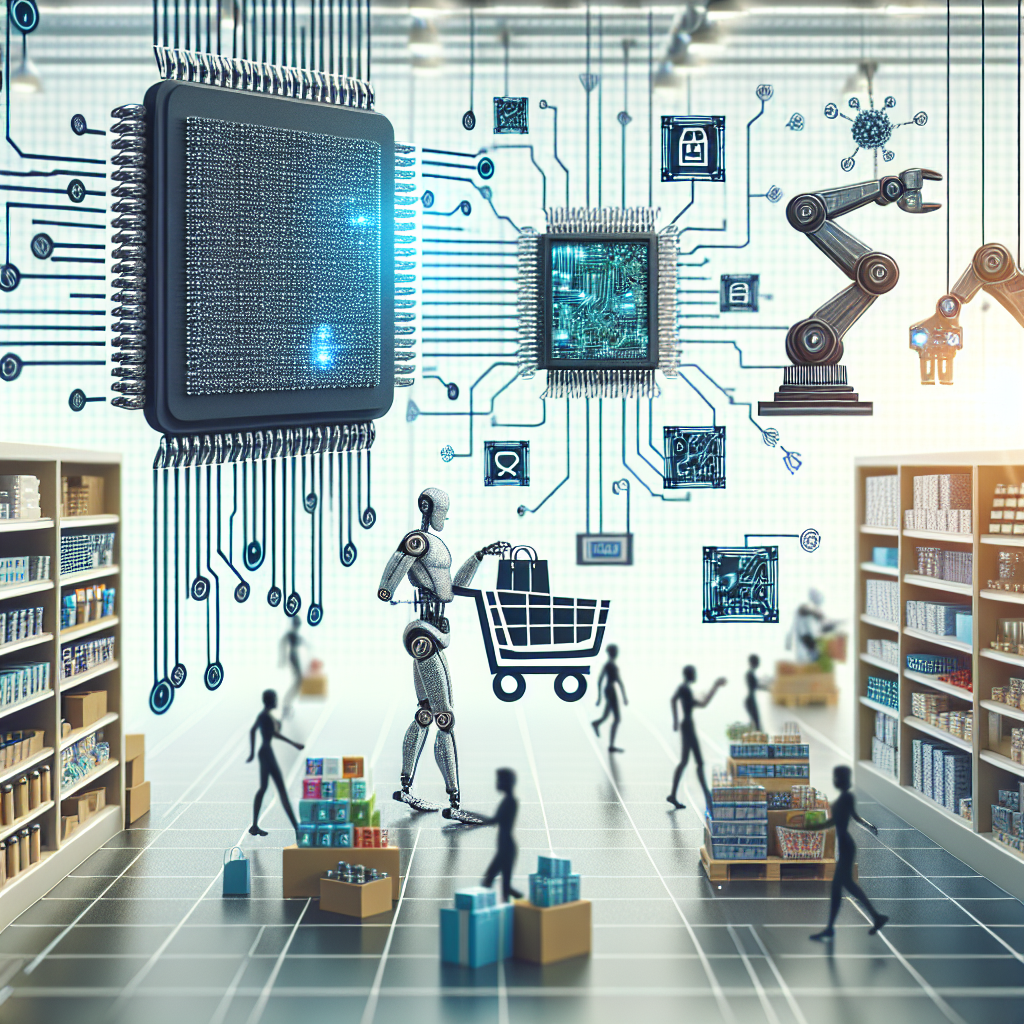The Future of AI Development in Retail
Artificial intelligence (AI) has been making significant strides in various industries, and retail is no exception. With the rise of e-commerce and the changing landscape of consumer behavior, retailers are increasingly turning to AI to enhance their operations and provide a more personalized shopping experience for customers. From predictive analytics to chatbots, AI is revolutionizing the way retailers do business. In this article, we will explore the future of AI development in retail and how it is reshaping the industry.
AI in Retail Today
AI is already being used in various aspects of retail, from inventory management to customer service. One of the most common applications of AI in retail is predictive analytics, which uses algorithms to analyze data and predict future trends. Retailers can use this information to optimize their inventory, pricing, and marketing strategies, ultimately improving their bottom line.
Another popular use of AI in retail is chatbots, which are AI-powered virtual assistants that can interact with customers in real-time. Chatbots can answer common customer inquiries, provide product recommendations, and even process orders, all without the need for human intervention. This not only improves the customer experience but also helps retailers save time and resources.
AI is also being used in retail to personalize the shopping experience for customers. By analyzing data on customers’ preferences and behavior, retailers can create personalized recommendations and promotions that are tailored to each individual shopper. This not only improves customer satisfaction but also helps retailers increase sales and loyalty.
The Future of AI in Retail
As AI technology continues to evolve, its impact on the retail industry is only expected to grow. Here are some of the key trends that we can expect to see in the future of AI development in retail:
1. Enhanced Customer Personalization: With advancements in AI algorithms and machine learning, retailers will be able to provide even more personalized shopping experiences for customers. AI will be able to analyze data on customers’ browsing and purchasing behavior in real-time, allowing retailers to offer personalized product recommendations, promotions, and discounts that are tailored to each individual customer.
2. Virtual Try-Ons and Personal Styling: AI-powered virtual try-on tools are already gaining popularity in the fashion industry, allowing customers to try on clothes virtually before making a purchase. In the future, we can expect to see more retailers adopting this technology to provide a more immersive and personalized shopping experience for customers. AI can also be used to provide personalized styling recommendations based on customers’ preferences and body type, helping them find the perfect outfit.
3. Autonomous Stores: The concept of autonomous stores, where customers can shop without the need for checkout lines or cashiers, is becoming a reality with the help of AI technology. Retailers are experimenting with cashierless stores that use AI-powered cameras and sensors to track customers’ movements and purchases, allowing them to simply grab items off the shelves and walk out without having to wait in line. This not only improves the shopping experience for customers but also helps retailers streamline their operations and reduce costs.
4. Supply Chain Optimization: AI is also being used to optimize the supply chain in retail, helping retailers improve inventory management, reduce out-of-stock situations, and minimize waste. By analyzing data on sales trends, weather patterns, and other factors, AI can help retailers forecast demand more accurately and make smarter decisions about inventory levels and distribution. This not only improves efficiency but also helps retailers reduce costs and increase profitability.
5. Voice Commerce: With the rise of smart speakers and virtual assistants like Amazon Alexa and Google Assistant, voice commerce is becoming an increasingly popular way for customers to shop online. AI-powered voice recognition technology allows customers to search for products, place orders, and track deliveries using only their voice, making the shopping experience more convenient and seamless. In the future, we can expect to see more retailers embracing voice commerce as a way to engage with customers and drive sales.
FAQs
Q: Will AI replace human workers in the retail industry?
A: While AI technology is expected to automate certain tasks in the retail industry, such as inventory management and customer service, it is unlikely to replace human workers entirely. AI is more likely to augment human capabilities, allowing retailers to improve efficiency and provide a better shopping experience for customers.
Q: How can small retailers benefit from AI technology?
A: Small retailers can benefit from AI technology by leveraging affordable AI solutions that are tailored to their specific needs. For example, small retailers can use AI-powered inventory management systems to optimize their stock levels and reduce waste, or AI-powered chatbots to improve customer service and engagement. By investing in AI technology, small retailers can compete with larger competitors and provide a more personalized shopping experience for customers.
Q: Is AI technology secure for retail operations?
A: As with any technology, it is important for retailers to implement security measures to protect their AI systems from cyber threats. Retailers should work with reputable AI providers that prioritize data security and compliance with industry regulations. By implementing best practices for data security and encryption, retailers can ensure that their AI systems are secure and protect customer information.
In conclusion, the future of AI development in retail is bright, with AI technology expected to revolutionize the industry in the coming years. From enhanced customer personalization to autonomous stores, AI is reshaping the way retailers do business and interact with customers. By embracing AI technology and leveraging its capabilities, retailers can improve efficiency, increase profitability, and provide a more personalized shopping experience for customers. As AI technology continues to evolve, retailers can expect to see even more exciting innovations that will transform the retail industry for the better.

